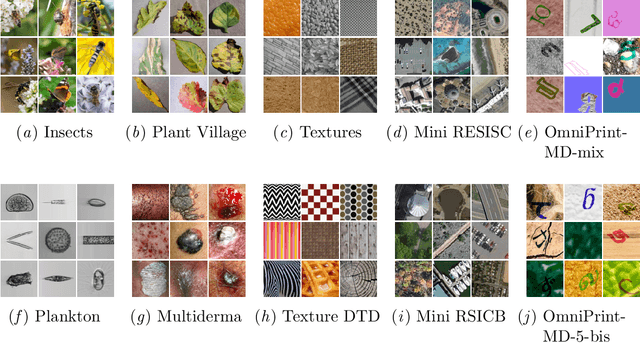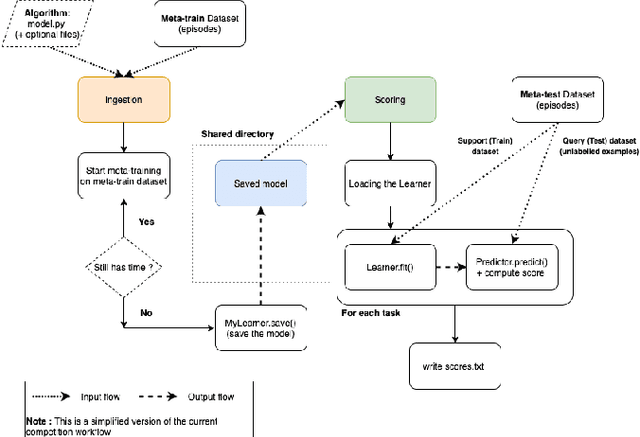Jan van Rijn
TAU, LISN
Lessons learned from the NeurIPS 2021 MetaDL challenge: Backbone fine-tuning without episodic meta-learning dominates for few-shot learning image classification
Jun 15, 2022

Abstract:Although deep neural networks are capable of achieving performance superior to humans on various tasks, they are notorious for requiring large amounts of data and computing resources, restricting their success to domains where such resources are available. Metalearning methods can address this problem by transferring knowledge from related tasks, thus reducing the amount of data and computing resources needed to learn new tasks. We organize the MetaDL competition series, which provide opportunities for research groups all over the world to create and experimentally assess new meta-(deep)learning solutions for real problems. In this paper, authored collaboratively between the competition organizers and the top-ranked participants, we describe the design of the competition, the datasets, the best experimental results, as well as the top-ranked methods in the NeurIPS 2021 challenge, which attracted 15 active teams who made it to the final phase (by outperforming the baseline), making over 100 code submissions during the feedback phase. The solutions of the top participants have been open-sourced. The lessons learned include that learning good representations is essential for effective transfer learning.
Advances in MetaDL: AAAI 2021 challenge and workshop
Feb 01, 2022


Abstract:To stimulate advances in metalearning using deep learning techniques (MetaDL), we organized in 2021 a challenge and an associated workshop. This paper presents the design of the challenge and its results, and summarizes presentations made at the workshop. The challenge focused on few-shot learning classification tasks of small images. Participants' code submissions were run in a uniform manner, under tight computational constraints. This put pressure on solution designs to use existing architecture backbones and/or pre-trained networks. Winning methods featured various classifiers trained on top of the second last layer of popular CNN backbones, fined-tuned on the meta-training data (not necessarily in an episodic manner), then trained on the labeled support and tested on the unlabeled query sets of the meta-test data.
 Add to Chrome
Add to Chrome Add to Firefox
Add to Firefox Add to Edge
Add to Edge